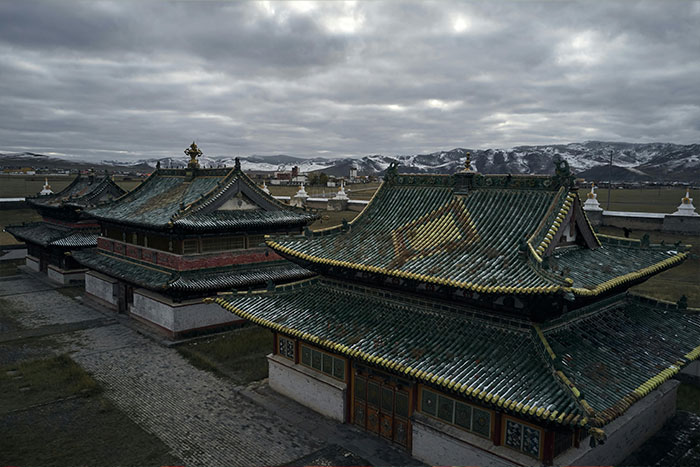So, while we can’t provide you with all there is to know, we can share some interesting facts, to evoke your curiosity at least. Scroll down to find some of the most fascinating little-known facts, as shared by members of the ‘Ask Reddit’ community, and see for yourself just how enthralling history can be and just how much there is still left to uncover.
Below you will also find Bored Panda’s interview with an associate professor of history at Southern Utah University, Dave Lunt, who was kind enough to answer a few of our questions about it and all sorts of historical fun facts.
Cassereddit , Nacho Domínguez Argenta/Unsplash Report
Genybear12 , Griffin Wooldridge/Pexels Report
redman9000 , Pexels Report
“However, it’s not that history ‘repeats’ (since circumstances can never be truly identical, as Heraclitus noted when he wrote that nobody can step into the same river twice), but rather learning about history trains our minds to interpret events, to identify cause-and-effect, to anticipate ramifications and historical significance.
“Of course, there is no perfect way to predict the future, but the process of evaluating and interpreting facts in order to understand the world is good exercise for our brains, and might help us make good decisions,” the expert said.
“Besides the value of practicing what we call ‘historical thinking’, I believe it is still important to memorize things. I understand that basic facts are often just an internet-search away, but the act of memorizing—whether it’s historical facts or poetry or anything else—has positive effects on our brains.”
redvariation , Cats Coming/Pexels Report
treearemadeofbark , ArtHouse Studio/Pexels Report
Remote-Building3208 , trialsanderrors/Flickr Report
censorized , Social Soup Social Media/Pexels Report
WhimsicalWhispere , Andrea Albanese/Pexels Report
Another example that the expert gave was the case of the Roman writer Pliny the Elder who recorded a tradition (written by an earlier writer named Caecilius) that the entrails of a hairy spider could be used as a contraceptive, if attached to a woman’s body before sunrise.
Atlantic_Nikita Report
RadiantRapturreee Report
TimeViking , Art Institute of Chicago/Unsplash Report
NismanNoMurio , Pixabay/Pexels Report
SpidermanBread , Pixabay/Pexels Report
AlertOtter58 , GPA Photo Archive/Flickr Report
“This Alexander occupied some Greek cities near the Isthmus of Corinth, including the city of Sicyon. Eager for independence, some warriors from Sicyon betrayed and killed Alexander, thinking they had won freedom for their city. Not so: Alexander’s wife, Cratesipolis, took control of her husband’s army, quelled the insurrection, and crucified those who had betrayed her husband.
“Women are often under-represented and many of their stories are untold in Greek history. I like reading stories like these that have somehow survived for thousands of years, and—like I pointed out above—they upend some of our assumptions (in this case about the role(s) of women in the ancient Greek world). Of course, maybe Cratesipolis was the one exception to the gender roles at the time; or maybe—and this is what I hope to be the case—ancient women had more opportunities than the sources suggest.”
prosperosniece , Casablanca Stock/Pexels Report
bbbbbthatsfivebees , Salvatore De Lellis/Pexels Report
kit_mitts Report
“I live in the United States, and I would love to learn more about ancient China and India,” he shared. “Occasionally, I have the chance to teach World History and we touch upon the ancient cultures of these places, but we can only scratch the surface of what there is to learn. Of course, I can—and I do—read and learn on my own as I can, but there are only so many hours in a day. Similarly, I wonder if people living in China and India today know less about the ancient cultures of the Americas because of the geographical distance that divides them. I don’t know this; I just wonder about it.
“In the world I study, one of the best sources for little-known facts or stories is the ancient Greek writer Plutarch. Plutarch is credited with writing volumes of anecdotes, quotations, essays, and ‘fun facts’ about the ancient Greek and Roman worlds. Collectively, these works are called the Moralia.”
Ok-disaster2022 , Pixabay/Pexels Report
space_llama_karma , Vitor Paladini/Unsplash Report
Idea_not_loading , Doina Gavrilov/Pexels Report
Civil-Resolution3662 , Jake Hutchinson/Flickr Report
InterestingAsian9742 Report
limbodog , hj_west/Flickr Report
Aardvark_Man Report
Few_Valuable2654 Report
sn0m0ns , Olena Bohovyk/Pexels Report
tim_to_tourach , allen watkin/Flickr Report
Vulcan_Jedi Report
realfakejames Report
Reach-for-the-sky_15 , Rasy Nak/Pexels Report
Follow Bored Panda on Google News!
Follow us on Flipboard.com/@boredpanda!

































































































